Trip hop is a musical genre that originated in the late 1980s in the United Kingdom, especially Bristol. It has been described as a psychedelic fusion of hip hop and electronica with slow tempos and an atmospheric sound, often incorporating elements of jazz, soul, funk, reggae, dub, R&B, and other genres, typically of electronic music, as well as sampling from movie soundtracks and other eclectic sources.

Luke Vibert is a British electronic musician and producer, also known for his work under several aliases such as Plug and Wagon Christ. Raised in Cornwall, Vibert began releasing projects in the 1990s across varied genres, including techno, drum and bass, and trip hop. He has recorded on labels such as Rephlex, Ninja Tune, Planet Mu, and Warp.
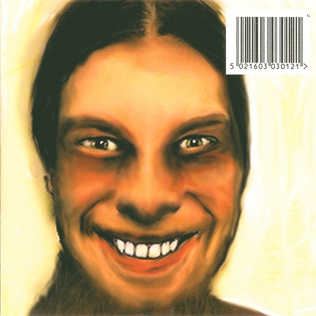
...I Care Because You Do is the third studio album by the British electronic music artist and producer Richard D. James under the alias of Aphex Twin. It was released on 24 April 1995 through Warp Records and contains material recorded between 1990 and 1994. It marked James's return to a beat-driven sound following the mostly ambient album Selected Ambient Works Volume II (1994), and combines abrasive rhythms with symphonic and ambient elements. The cover artwork is a self-portrait of James.

Endtroducing..... is the debut studio album by American music producer DJ Shadow, released on September 16, 1996, by Mo' Wax. It is an instrumental hip hop work composed almost entirely of samples from vinyl records. DJ Shadow produced Endtroducing over two years, using an Akai MPC60 sampler and little other equipment. He edited and layered samples to create new tracks of varying moods and tempos.

Psyence Fiction is the debut studio album by English electronic music act Unkle, released on 24 August 1998 by Mo' Wax. The album was produced by Unkle, at the time consisting of James Lavelle and DJ Shadow. The music on Psyence Fiction was primarily composed by DJ Shadow, while Lavelle recruited numerous guest musicians to contribute to the album's recording.

Critical Beatdown is the debut studio album by American hip hop group Ultramagnetic MCs, released on October 4, 1988, by Next Plateau Records. The album was produced primarily by the group's rapper and producer Ced-Gee, who employed an E-mu SP-1200 sampler as the album's main instrument. Music journalists have noted the album for its innovative production, funk-based samples, self-assertive themes, and clever lyrical rhymes by Ced-Gee and rapper Kool Keith.
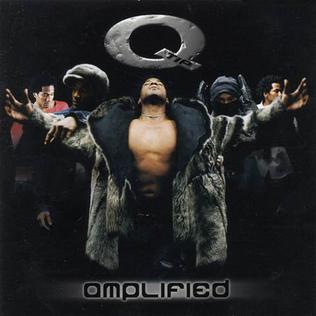
Amplified is the debut studio album of American rapper Q-Tip, released November 30, 1999, on Arista Records. It became his first solo release after the disbandment of his former group A Tribe Called Quest in 1998. The production was primarily handled by Q-Tip and Jay Dee of the Ummah. The album spawned the Billboard Hot 100 hits "Vivrant Thing" and "Breathe and Stop".
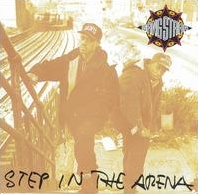
Step in the Arena is the second studio album by hip hop duo Gang Starr, printed as a 1990 release, and commercially released on January 15, 1991. In 2007, it was named the greatest hip hop album of all time by IGN. HipHopDX called it "the album that cemented Gang Starr as a timeless tag team."
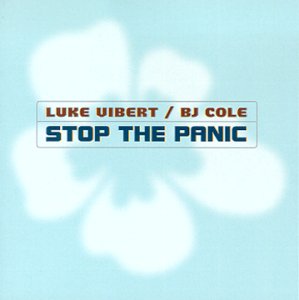
Stop the Panic is a collaborative album by Luke Vibert and BJ Cole, released in 2000.
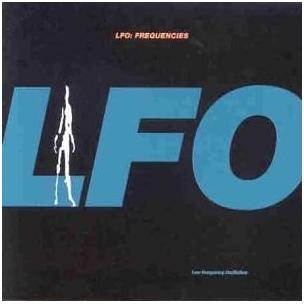
Frequencies is the debut studio album by British electronic music duo LFO, released on 22 July 1991 by Warp. It peaked at No. 42 on the UK Albums Chart and was released to universal acclaim.
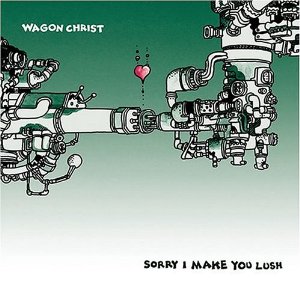
Sorry I Make You Lush is a studio album by Luke Vibert, released under the alias Wagon Christ. It was released in 2004 on Ninja Tune. The CD version includes a QuickTime video of "Receiver".
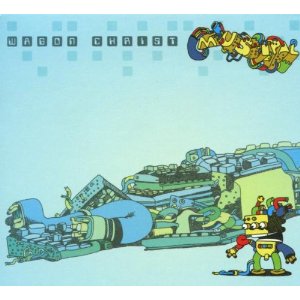
Musipal is a studio album by Luke Vibert, released under the alias Wagon Christ. It was released in 2001 on Ninja Tune.

Tally Ho! is a studio album by Luke Vibert, released in 1998. It is the third album under his alias Wagon Christ.
Rising High Records was a leading British record label, established in 1991, specializing in rave, techno and ambient chillout music. Founded by Caspar Pound, who had chart success with A Homeboy, a Hippie and a Funki Dredd, the label went on to be at the forefront of dance music in the 1990s. The label was formed at F2 studios in London with studio owner Rob Mcluhan. Pound had recorded "Total Confusion" at F2 and decided to form his own label in partnership with the studio, teaming up with the in-house producer Pete Smith to form The Hypnotist. The label's first release "Rainbows in the Sky" became an instant hit, and was quickly followed by "The House Is Mine" and "Hardcore You Know the Score", three tracks that defined the sound of techno through the decade. Vocals and samples for all three were provided by Andy Higgins, who also ran the export and production of the label in the early years, according to Colin Larkin in The Guinness Who's Who of Rap, Dance and Techno.
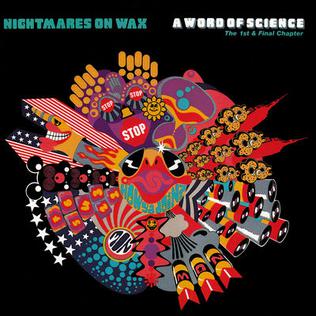
A Word of Science is the debut studio album by British electronic producers Nightmares on Wax. Released by Warp Records in September 1991, it is the act's only album as a group before it became a solo vehicle for George Evelyn. Evelyn nonetheless recorded and produced the album alone, incorporating samples and elements from demo tapes he made in the late 1980s. Although Nightmares on Wax debuted with two well-received techno singles in 1989-1990, A Word of Science is eclectic and largely moves the act towards a more mellow style influenced by funk, soul and hip hop, while still incorporating techno, drum and bass, and house styles.
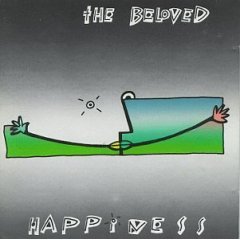
Happiness is the debut studio album, and second album overall, by English electronic group The Beloved, released in February 1990 in the United Kingdom by East West Records and in the United States by Atlantic Records the following month. The group's first album since slimming down from a four-piece to a duo comprising Jon Marsh and Steve Waddington in 1987, the two members moved away from their previous, New Order-styled sound and drew influence from the late 1980s rave scene in London and from Black American house music.

"Paraffin" is the first single by British trip hop/industrial band Ruby, from their debut album, Salt Peter (1995). It was released in the United Kingdom on September 4, 1995, and in the United States on November 7, 1995, by the WORK/Creation record labels. The song was written and produced by Lesley Rankine and Mark Walk, and only charted in the UK and Australia, not in the US. As with all of Ruby's singles, "Paraffin" had a promotional video made for it.

Big Soup is a studio album by English electronic musician Luke Vibert. His first non-collaborative studio album under his own name, it was released on 7 July 1997 by Mo' Wax.
Sampledelia is sample-based music that uses samplers or similar technology to expand upon the recording methods of 1960s psychedelia. Sampledelia features "disorienting, perception-warping" manipulations of audio samples or found sounds via techniques such as chopping, looping or stretching. Sampladelic techniques have been applied prominently in styles of electronic music and hip hop, such as trip hop, jungle, post-rock, and plunderphonics.

One is the debut studio album by English experimental electronic producer Req, recorded from September 1995 to 1996 and released on Skint Records in 1997. After releasing several EPs, Req decided to release an album to spread his sound. His conception for One was to create music that hints at a direction without ever arriving at one. Music critics had difficulty defining the album's style, and is seen as a "blunted take" on trip hop with downtempo ambience. The album was well received by critics, who praised its unique sound and production. Today, it is seen as a predecessor to the late 1990s' "intelligent big beat" of fellow Skint artists such as Lo-Fidelity Allstars, and in 2015, Fact named the album the 14th greatest trip hop album of all time.
















